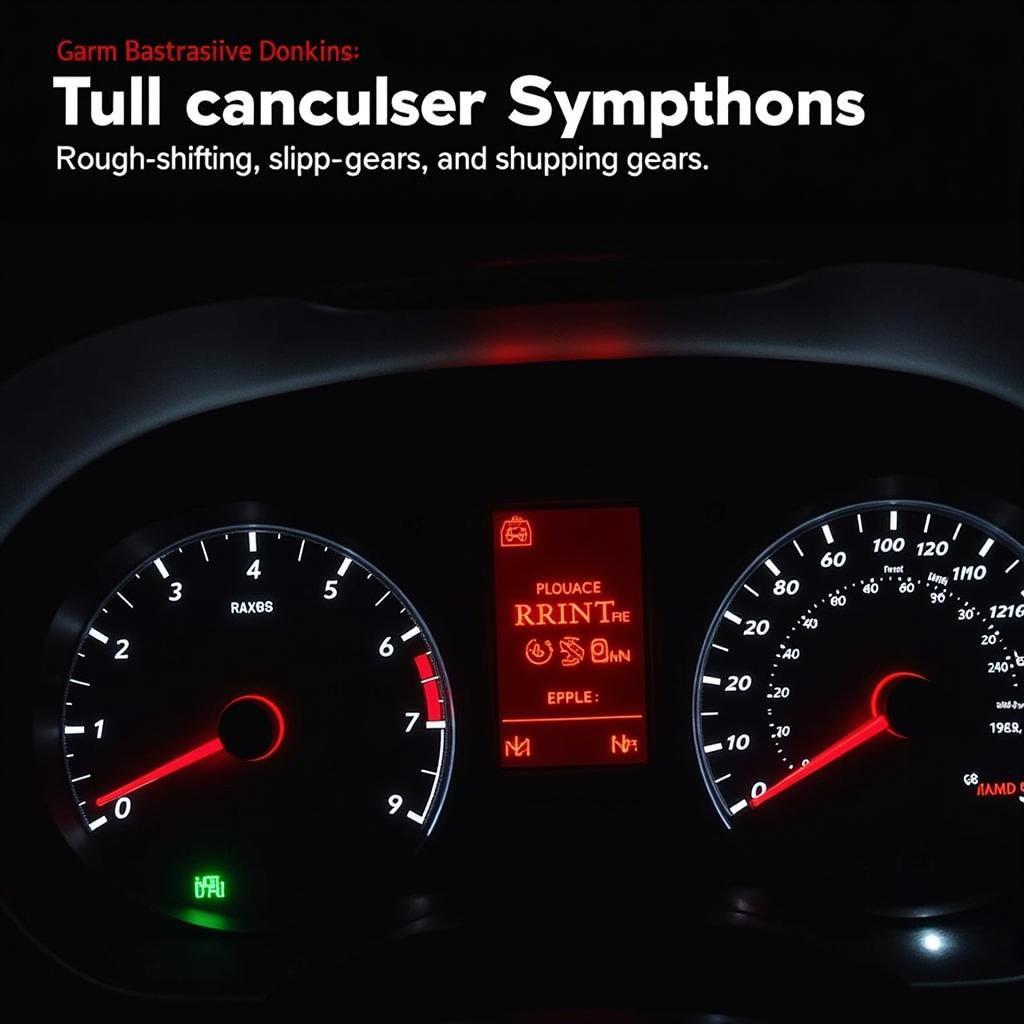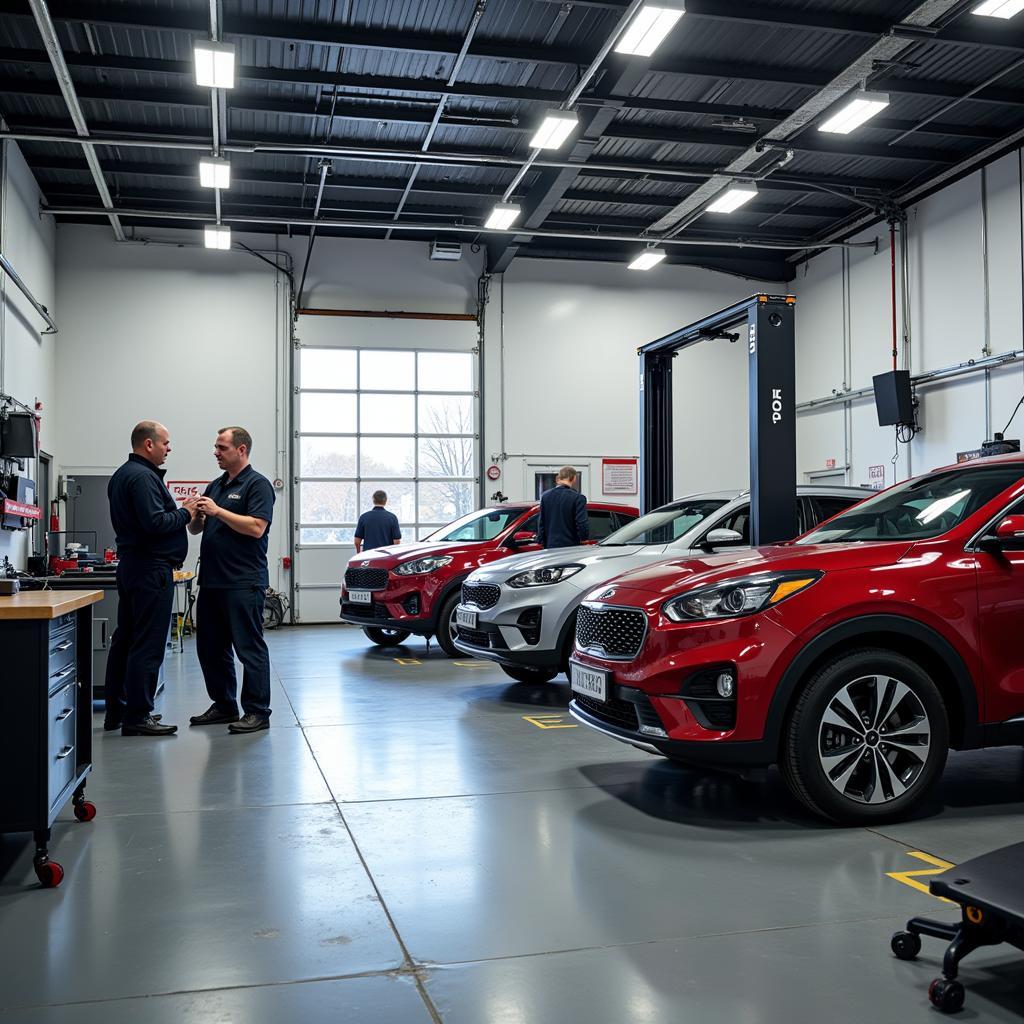Experiencing high-frequency distortion in your car speakers can be incredibly frustrating. Whether you’re a casual listener or an audiophile, that crackling, buzzing, or harshness in your high notes can ruin your driving soundtrack. This guide dives into the common causes of high notes sound distortion in car speakers and how to fix them, offering solutions for car owners, mechanics, and technicians alike.
Identifying the Culprit Behind High Notes Sound Distortion
Distorted high notes can stem from several sources, ranging from simple tweaks to more complex electrical issues. Pinpointing the origin of the problem is the first step towards a crystal-clear audio experience.
Common Causes of High Notes Sound Distortion
Several factors can contribute to high-frequency distortion in your car’s audio system. Here’s a breakdown of the usual suspects:
- Damaged Speaker Components: A blown tweeter, a tear in the speaker cone, or a damaged voice coil can all cause distortion, particularly at higher frequencies.
- Overpowering the Speakers: Pushing your speakers beyond their power handling capacity can lead to distortion. This is especially common when the volume is cranked up high.
- Incorrect Amplifier Gain Settings: An improperly configured amplifier can send distorted signals to the speakers, even at moderate volumes.
- Poor Quality Audio Files: Low-bitrate audio files, often heavily compressed, can lack high-frequency detail and introduce distortion.
- Wiring Problems: Loose, corroded, or damaged wiring can interrupt the audio signal and create distortion.
- Faulty Head Unit: A malfunctioning head unit can generate distorted audio signals, affecting all frequencies.
- Interference from Other Electrical Components: In some cases, interference from other car electronics can introduce noise and distortion into the audio system.
Fixing High Notes Sound Distortion: A Step-by-Step Guide
Now that we’ve identified the potential causes, let’s explore the solutions. Here’s how to tackle high notes sound distortion:
- Check the Audio Source: Start by playing a high-quality audio file from a different source, like a CD or a lossless digital file. If the distortion disappears, the problem lies with the original audio source, not your car’s audio system.
- Inspect the Speakers: Carefully examine your speakers for any visible damage. Look for tears in the cones, dents in the dust caps, and any signs of wear and tear.
- Verify Amplifier Settings (If Applicable): If your system has an amplifier, ensure it’s properly configured. Incorrect gain settings can lead to clipping and distortion.
- Check the Wiring: Inspect all wiring connections for looseness, corrosion, or damage. Secure any loose connections and replace any damaged wires.
- Test the Head Unit: Try playing audio through a different head unit (if possible) to rule out any issues with your current one.
When to Call in the Pros
While some fixes can be done DIY, others require professional expertise. If you’ve tried the basic troubleshooting steps and the distortion persists, it’s best to consult a qualified car audio technician. They have the tools and knowledge to diagnose and repair more complex issues.
High Notes Sound Distortion Fix Car Speakers: Expert Insights
“One common mistake people make is cranking up the bass too high, which can mask high-frequency distortion until it becomes severe,” says John Miller, a seasoned car audio technician with over 20 years of experience. “Always start with a balanced sound profile and gradually adjust the EQ.”
Conclusion
High notes sound distortion in your car speakers can be a nuisance, but it’s often a solvable problem. By systematically checking the common culprits, you can often pinpoint the source of the issue and restore your car’s audio to its former glory. Remember, if the problem persists, seeking professional help is always a good idea. For further assistance or personalized advice, don’t hesitate to contact AutoTipPro at +1 (641) 206-8880 or visit our office at 500 N St Mary’s St, San Antonio, TX 78205, United States.
FAQ
- Why are my tweeters distorting at high volume? Tweeters are designed to handle high frequencies, but exceeding their power limit can cause distortion.
- Can a bad ground cause speaker distortion? Yes, a poor ground connection can introduce noise and distortion into the audio signal.
- How do I know if my car speakers are blown? Blown speakers often exhibit buzzing, rattling, or a complete lack of sound.
- Is it better to replace or repair a blown tweeter? Replacing a tweeter is generally more cost-effective than repairing it.
- How can I prevent high notes sound distortion in my car speakers? Avoid exceeding your system’s power limits, use high-quality audio files, and ensure proper wiring and amplifier settings.
- What is speaker clipping? Clipping occurs when the amplifier sends a signal that is too strong for the speaker to handle, resulting in a distorted, harsh sound.
- Can a faulty head unit cause high-frequency distortion? Yes, a malfunctioning head unit can generate distorted audio signals, affecting all frequencies, including high notes.






Leave a Reply